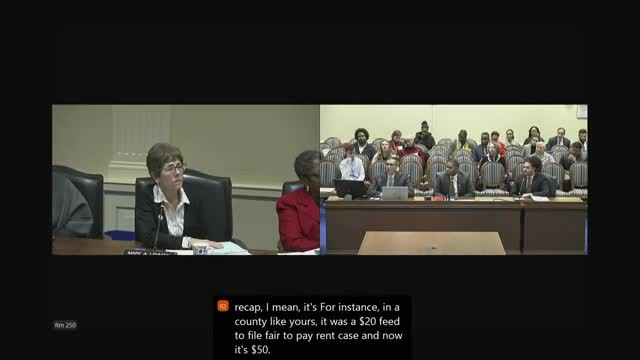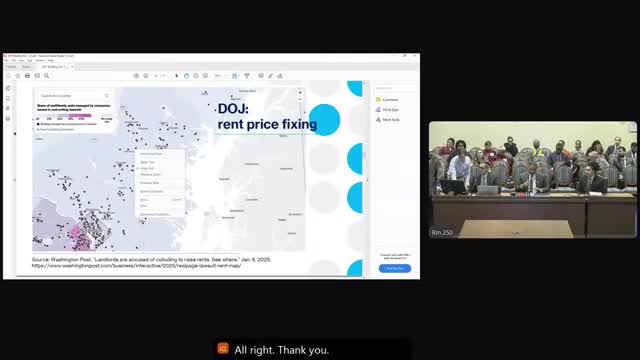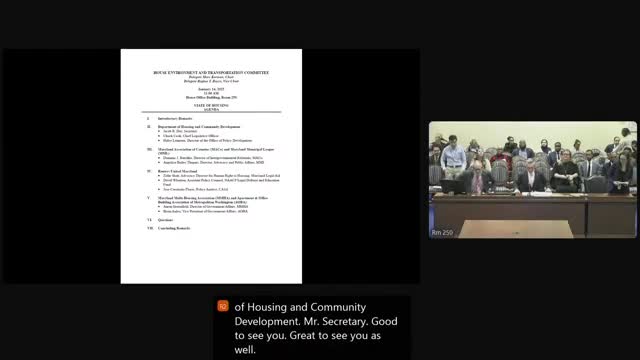Article not found
This article is no longer available. But don't worry—we've gathered other articles that discuss the same topic.

Landlords warn rent-stabilization and building-energy rules could chill investment and raise operating costs

Tenant advocates say Maryland faces an eviction crisis; praise access-to-counsel and tenant safety law

County and municipal officials tell committee infrastructure, permitting and local differences limit housing production

